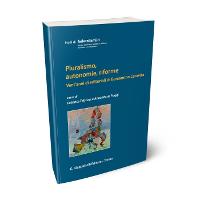
Log in or Create account
FOCUS - Costituzione economica, integrazione sovranazionale, effetti della globalizzazione N. 5 - 25/10/2019
Do common constitutional traditions matter in the field of regulated markets?
A new tension is spreading throughout Europe: the tension between Common Constitutional Traditions (CCTS) and Constitutional Identity (CI). Recent cases brought before the Court of Justice of the European Union (CJEU), which have gone to the core of European Integration, have revealed this tension. In particular, I mention the “Taricco saga” and the more recent cases concerning the independence of the judiciary in Poland. The rulings concerning the first group of cases use the concept of CCTS in a quite conventional way, that is, with regard to fundamental rights. As Professor Sabino Cassese wrote concerning the CCTS clause: “Its purpose in the TEU is very clear. It should be instrumental to the establishment of general principles for the protection of fundamentals rights”. But, immediately after, he added:“In principle, common constitutional traditions can go beyond the protection of fundamental rights, and could be instrumental, for example, to new arrangements in other areas of European law, such as the separation of powers or judicial independence. However its scope is limited by the TEU”. Indeed, in the second group of cases I mentioned, the CCTS are invoked in relation to a fundamental principle of constitutional organization, that of the independence of the Judiciary. The ruling of the Grand Chamber on the 27 February 2018, Associação Sindical dos Juízes Portugueses, recognized the role in primary EU law of the principle of independence of the judiciary, which has its roots in the right to effective judicial protection, qualified as a general principle of EU law which derives from the CCTS of the Member State and which is guaranteed by the European Convention for the Protection of Human Rights and Fundamental Freedoms and by Art. 47 of the Charter of Fundamental Rights of the EU. The subsequent Grand Chamber ruling of 25 July 2018, LM, strongly reaffirmed that the principle of the independence of Judges concerns the essential content of the fundamental right to a fair process and added that it plays a crucial role in guaranteeing the common values of the Member States recognized by Art. 2 of the TEU, including the rule of law. In these rulings, the interaction between the CCTS and fundamental rights produces a general principle which goes beyond the sphere of fundamental rights, affects the constitutional organizations of the Member States and concerns the core values of the EU. Immediately after the request for a preliminary ruling on the same issue by the Polish Supreme Court, the Attorney General/Minister of Justice of the Republic of Poland submitted a question before the National Constitutional Court (in October 2018) concerning the compatibility of Art. 267 TFEU with Poland’s Constitution, in so far as it allows a preliminary ruling to be given on fundamental aspects of the Constitution. The Polish Question expresses the tension which the relationship between the CCTS and CI (Constitutional Identity) can trigger and shows that if constitutional identity can be used to reaffirm a certain pluralism, referrals to the CCTS can go in the opposite direction, acting as a centripetal force. In the end, this dialectical relationship seems, in part, to overlap with the relationship between European Integration and State Sovereignty. As Joseph Weiler suggested some years ago, National Identity may be considered a disguised form of Sovereignty. At this point in time, it is possible that the complex relationship between the CCTS and CI will affect other areas, such as the market regulation and public intervention in the economic sphere. This is an area in which the eurozone crisis, which peaked in 2011, has left many problems unresolved, as well as conflicting ideas on how to restore sustainable economic growth together with financial stability. A political context which fuels the dialectical relationship between European economic integration and economic sovereignty… (segue)
NUMERO 20 - ALTRI ARTICOLI
-
ITALIA - DOTTRINA
La premialità edilizia, la compensazione urbanistica e il trasferimento dei diritti edificatori
ITALIA - DOTTRINAL'Umbria, il tramonto di una regione 'rossa'
-
ITALIA - DOTTRINA
Spunti di riflessione sull'insindacabilità dei consiglieri regionali e dei parlamentari per i 'voti dati' quali membri degli Uffici di presidenza
ITALIA - DOTTRINALa corruzione come disvalore costituzionale
-
ITALIA - DOTTRINA
Cittadinanza europea, perdita della cittadinanza nazionale
ITALIA - DOTTRINAIl conflitto catalano tra giustizia e politica



 Registrati
Registrati Login
Login
 Riforme istituzionali e forma di governo
Riforme istituzionali e forma di governo Lavoro Persona Tecnologia
Lavoro Persona Tecnologia Osservatorio di Diritto sanitario
Osservatorio di Diritto sanitario Osservatorio Trasparenza
Osservatorio Trasparenza Africa
Africa Human Rights
Human Rights America Latina
America Latina Territorio e Istituzioni
Territorio e Istituzioni Storico focus
Storico focus Scarica il Documento integrale
Scarica il Documento integrale STUDI FEDERALISMI
STUDI FEDERALISMI





03/06/2024
15/03/2024
29/12/2023
04/08/2023
05/06/2023
30/01/2023
09/12/2022
28/10/2022
28/03/2022
02/02/2022
17/01/2022
12/02/2021
18/01/2021
13/11/2020
12/10/2020
17/06/2020
01/06/2020
18/05/2020
04/05/2020
24/04/2020
10/04/2020
27/03/2020
10/04/2020
25/10/2019
27/09/2019
15/04/2019
25/03/2019
14/01/2019
14/12/2018
16/11/2018
09/11/2018
14/09/2018
03/09/2018
22/06/2018
23/02/2018
27/11/2017
02/10/2017